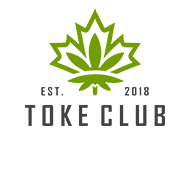Magic Mushrooms
How Psilocybin, the Psychedelic in Mushrooms, May Rewire the Brain
Psilocybin, the active compound found in magic mushrooms, has garered significant attention in recent years for its potential therapeutic benefits. As research into psychedelics expands, scientists are uncovering how psilocybin can alter brain function and connectivity, leading to profound changes in perception, mood, and overall mental health. This blog post explores how psilocybin may rewire the brain and its implications for mental health treatment.
Understanding Psilocybin and Its Effects
Psilocybin is a naturally occurring psychedelic compound found in various species of mushrooms. When ingested, the body converts psilocybin into psilocin, which interacts with serotonin receptors in the brain, particularly the 5-HT2A receptor. This interaction is responsible for the characteristic psychedelic effects, such as altered sensory perception, enhanced emotional experiences, and shifts in thought patterns.
The Brain’s Default Mode Network (DMN)
One of the most significant areas of interest in psilocybin research is its effect on the brain’s Default Mode Network (DMN). The DMN is a network of brain regions that is active when a person is at rest and not focused on the external environment. It’s involved in self-referential thoughts, daydreaming, and the sense of ego.
Research shows that psilocybin can reduce activity in the DMN, leading to decreased self-referential thinking and a feeling of ego dissolution. This reduction can create a sense of connectedness to the world and others, which many users describe as a deeply spiritual experience.
Rewiring the Brain: Enhanced Neural Connectivity
Recent studies have demonstrated that psilocybin can facilitate increased neural connectivity, allowing different brain regions to communicate more effectively. This phenomenon can be likened to a traffic jam clearing, where previously isolated areas of the brain start working together more harmoniously.
1. Increased Neuroplasticity
Psilocybin may promote neuroplasticity—the brain’s ability to reorganize itself by forming new neural connections. This is particularly beneficial for individuals dealing with mental health issues like depression and anxiety, as it can allow for new thought patterns and emotional responses. Studies suggest that psychedelics may help “reset” the brain, enabling individuals to break free from rigid, negative thought patterns.
2. Therapeutic Potential for Mental Health Disorders
The rewiring effects of psilocybin have opened new avenues for treating various mental health conditions:
Depression: Clinical trials have shown that psilocybin can lead to significant reductions in depressive symptoms, often after just one or two doses.
Anxiety and PTSD: Patients report decreases in anxiety levels, and some studies suggest psilocybin can help process traumatic memories more effectively.
Substance Use Disorders: Psilocybin has shown promise in treating addiction, helping individuals gain new insights and perspectives on their habits.
The Experience of Psilocybin
The subjective experience of taking psilocybin can be transformative. Users often report feelings of unity, profound emotional release, and clarity of thought. These experiences may facilitate therapeutic breakthroughs, allowing individuals to confront and process deep-seated emotional issues in a supportive environment.
The Role of Set and Setting
The context in which psilocybin is consumed—referred to as “set and setting”—plays a crucial role in the overall experience. A safe, controlled environment with a supportive guide can enhance the therapeutic effects, making it easier for individuals to explore their thoughts and feelings.
Psilocybin’s potential to rewire the brain represents a promising frontier in mental health treatment. By fostering enhanced neural connectivity and promoting neuroplasticity, psilocybin can help individuals break free from entrenched patterns of thinking and feeling. As research continues to unfold, we may soon see psilocybin integrated into mainstream therapeutic practices, offering hope for those struggling with mental health disorders. The journey toward understanding the full implications of psilocybin on the brain is still in its early stages, but the potential benefits are both exciting and transformative.

